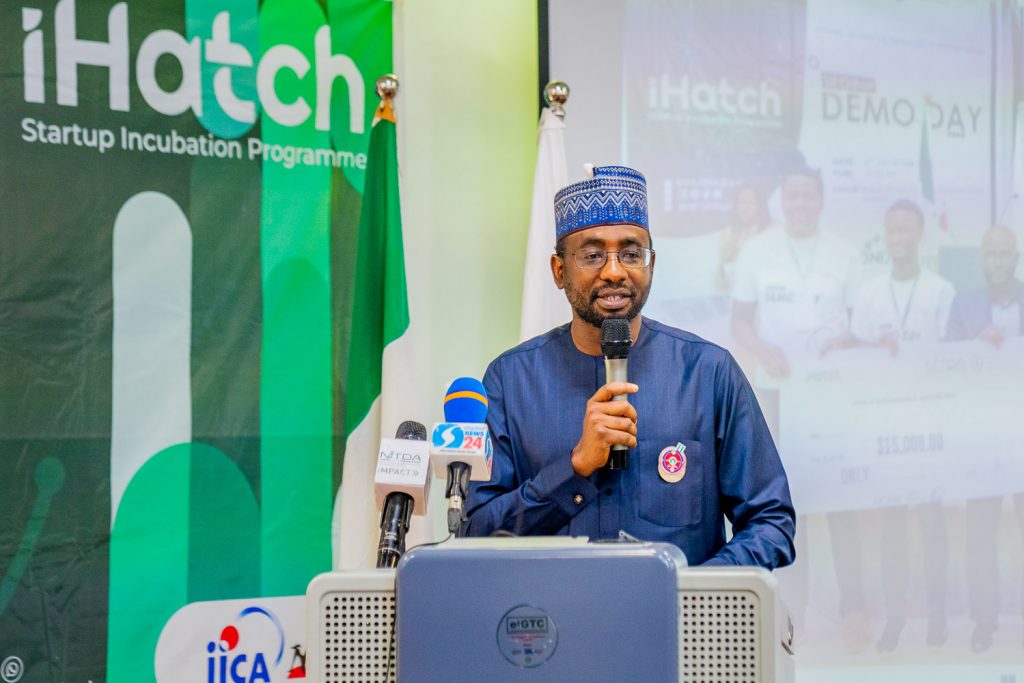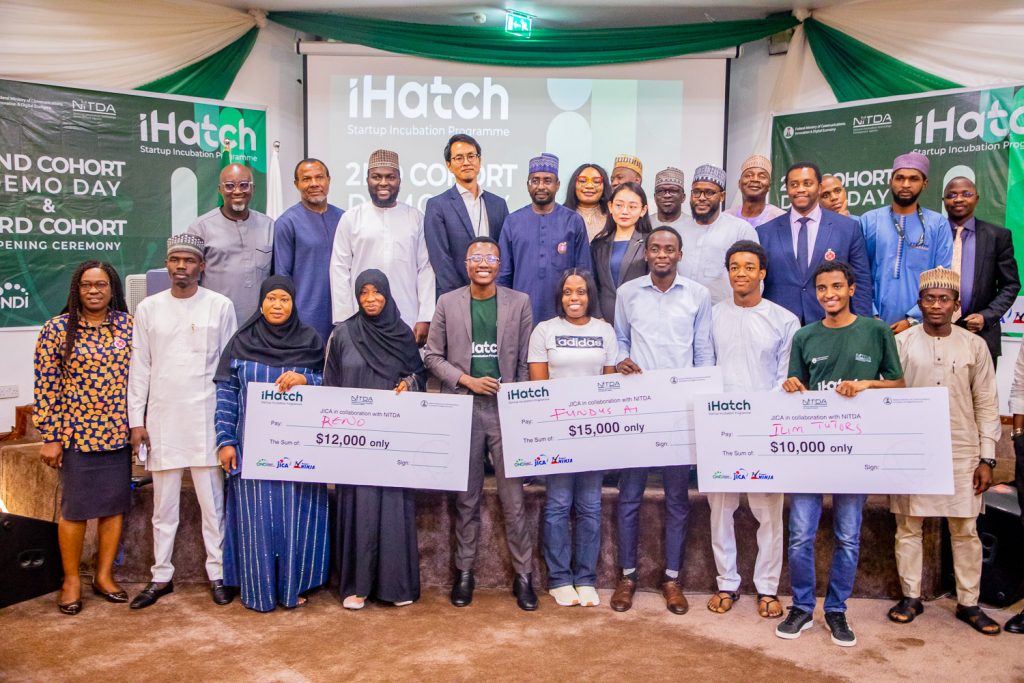Opinion
NDLEA and Drive for Global Reach
Published
1 year agoon
By Emmanuel Onwubiko
“Every man’s work is a portrait of himself”.
-Cyril Chukwudi Ibe;
“Still in search of a fine mind”.
The above citation from a tiny book written way back, takes us to the profoundly scholarly observation that was made by Mark H. McCormack in one of his fantastic books titled “What they don’t teach you at Harvard Business School”.
Obviously, Mark McCormack has a reputation as the writer of this famous international bestseller which fills the gap between a business school education and the knowledge that comes from day-to-day experience of running a successful business and managing people.
As we settle down in this reflection to focus on the multidimensional steps that the Executive Chairman of the National Drugs Law Enforcement Agency (NDLEA) Brigadier-General Mohammed Buba Marwa (CON) rtd, has adopted to attract global attention to the anti-drug war currently going on under the administration of president Muhammadu Buhari, we will do justice to this write up by drinking from the rich fountain of wisdom erected by the author Mark H McCormack.
The aforementioned author wrote thus: “As we have seen, your secretary is your official link with the outside world and how she deals with it is a mirror image of how the outside world sees you. If she is abrupt, you are perceived to be abrupt.
If she drops confidential information you are perceived to drop confidential information. If she drops names on your behalf, you are perceived as a name dropper. If she is officious and overbearing, then you are thought to be officious and overbearing.”
The author argued further that the secretary of a leading British television executive consistently makes it impossible for me to arrange any sort of meeting with her boss. On countless occasions, I have tried to arrange a get-together at any time during the next two weeks only to have his secretary tell mine that he is always ‘too busy. Yet without fail, when I get to the man directly, meetings are easy to arrange.
Of course, secretaries, he said, do play a certain protective role. By screening you from others, they enable you to act rather than react to a variety of business situations. However, there is a whole range of positive and negative ways in which this screening can be done. It is often as simple as the difference between saying. Who may I say is calling?’ and Who’s this?
The author also observed that: “Secretaries often come off as drill sergeants, and I have seen executives who are amused by their abrupt manner and even encourage it. I suspect that those who do think that the abruptness makes them appear that much more important.
Of course, this applies to all subordinates. If they work directly for you, it is likely that you are being judged at least partially by how they present themselves. So if you become aware of obvious rough edges, it is in your self-interest to point them out.”
The above narratives of a secretary can be referred to as a metaphor of how the management and staff of the NDLEA has through the dint of good example by their head, continue to exhibit compulsive and merit based services to the motherland through their well coordinated combat against drug barons in Nigeria and by extension, the Chief executive officer of NDLEA has deliberately launched a global wide advocacy drives to seek for international working partnership with some of the best authorities in the battles against transnational hard drug trafficking.
These deliberate global wide advocacy campaigns against hard drugs and the fruitful search he has so far actualized to get agreements entered into with international bodies and many other nations of diverse continents on exchange of intelligence on movements of hard drugs, will remain one of the best moves made by Nigeria in over fifty years to battle and combat the scourge of drugs. There is gainsaying the fact that hard drugs trafficking is an international crime that go beyond the shores of Nigeria and because Nigeria is not a producing nation for harddrugs, it is however a transit nation. This demands that all hands must be on deck to uproot these traffickers and barons both from within and without.
Only recently, Nigeria and India have agreed to exchange vital intelligence on the activities of drug trafficking syndicates operating vulnerable drug routes between both countries, while the latter will also strengthen the capacity of NDLEA officers with training.
This was part of recommendations and agreements reached at the end of a two-day bilateral meeting held in New Delhi, India between an NDLEA delegation led by its Chairman/Chief Executive, Brig. Gen. Mohamed Buba Marwa (Retd) CON, OFR and its India counterpart, Narcotics Control Bureau, NCB, led by its Director General, Mr. Satya Narayan Pradhan.
The meeting also recommended exchange of best practices in drug demand reduction and sharing of real time information on the involvement of nationals of both countries in drug trafficking as well as conducting joint operations, while agreeing to hold another bilateral meeting in Nigeria in 2023. Another key objective of the India meeting was the collaboration between NDLEA and NCB on how to control the importation of tramadol above 100mg as well as certain categories of precursors into Nigeria.
In his presentation at the talks, Marwa expressed gratitude to NCB and its management for the warm reception accorded his delegation. He underscored the importance of the meeting to the global action against drug trafficking given the historical antecedents of both countries, the commonality of language, legal systems, population and the existing robust trade relations. He reiterated the need for strengthened collaboration between the two agencies in the fight against illicit drug cultivation, production and trafficking. While highlighting Nigerias drug use and trafficking challenges, he noted the increased national efforts to adopting a balanced approach to addressing both the drug supply and demands reduction.
He further underlined the importance of international cooperation and stakeholders’ engagement, adding that Nigeria has a National Drug Control Master Plan as the veritable tool to drug control and enforcement, which has facilitated effective co-ordination at federal and state levels and is being encouraged at the local government level.
He expressed the hope that a Memorandum of Understanding, MoU, that would define the relationship between the two agencies with reference to information sharing, assets tracing and forfeiture of assets found to be connected to, and/or proceeds, of drug trafficking would be finalised soon.
In his remarks, Mr. Satya Narayan Pradhan of NCB, head of Indian delegation welcomed the delegations of both countries for the meeting, while he highlighted the issues particularly the trafficking of Heroin and Amphetamine Type Stimulants (ATS) in the country. He said that the drug trafficking through maritime and air route is a challenge for both countries.
He elaborated on trends showing the emergence of illicit drug trafficking through couriers, dark-net markets and social media platforms with a promise to share the information about the latest mechanism and technologies to fight the emerging threats.
Those on the NDLEA delegation include: Mrs. Eucharia Ngozi Eze, Minister- Counsellor, High Commission of Nigeria, New Delhi; Mr. Joseph Nbona Sunday, Director Prosecution and Legal Services of the Agency; Mr. Ahmad Tijani and Mr. Hamza Umar, Commandant, NDLEA Academy. The NCB team led by its DG had nine other officers of the Bureau at the meeting.
Besides, the National Drug Law Enforcement Agency (NDLEA) and the International Criminal Police Organisation, popularly known as Interpol, have signed a Memorandum of Understanding (MoU) that will enable the anti-narcotics outfit contribute to the pool of global criminal data and also access records of 195 countries around the world.
NDLEA Chairman/Chief Executive, Brig.-Gen. Mohammed Buba Marwa (rtd) signed for the agency, while the Assistant Inspector General of Police in charge of National Central Bureau and Vice President, Interpol Africa, Garba Baba Umar, endorsed the document on behalf of the global body.
Speaking at a brief ceremony at the National Central Bureau (NCB) Secretariat, Force Headquarters, Abuja, yesterday, Marwa reminded the audience that drug business is international in scope, while the scourge of substance abuse has continued to destroy lives, youths, families and communities, stressing that it also fuels criminality, as perpetrators either consume illicit substances or use proceeds to fund their nefarious activities.
His words: “As we are after the drug cartels and barons, we are not under the illusion that they won’t be after us. But, we are always steps ahead of them. This is why all security agencies must collaborate to fight the cartels, whether in Nigeria or anywhere in the world. We are, therefore, happy that the signing of this MoU allows us access to contribute and benefit from criminal records of 195 countries globally.”
He commended the Inspector General of Police, Alkali Baba Usman, for his leadership acumen and commitment to the anti-drug crusade in Nigeria, citing the IGP’s memo to all police formations nationwide to always transfer drug cases to NDLEA across the states for investigation and prosecution, as a mark of cordial collaboration.
Earlier, AIG Garba Umar lauded Marwa for transforming NDLEA to a groundbreaking agency within a short time of assumption of office. He called for more support for the anti-narcotics agency.
He highlighted the significance of the pact to the success of NDLEA operations and pledged the full support of Interpol at all time.
Importantly, impressed by the high standards that the current hierarchy of NDLEA has set in the fight against drugs, the United Kingdom says it will provide £1 million worth of support to enhance the operations of the National Drug Law Enforcement Agency, (NDLEA) in 2022 and additional provision over a period of three years.
Nick Fowler, the director of home office international operations, said this when he led a team on a courtesy visit to Buba Marwa, the NDLEA chairman, at the headquarters on Friday in Abuja.
In a statement by Femi Babafemi, director, media and advocacy of the NDLEA, Fowler commended Marwa for the success that the agency has recorded under his leadership.
Fowler said the agency had been able to play a significant role by intercepting loads of illicit drugs going to the UK.
He said his office was well positioned to share intelligence with NDLEA.
He also assured that the British government was willing to enhance NDLEA’s operations with provision of strategic equipment, logistics and training.
These, he said, were part of the £1million plan, to be implemented in 2022 with additional support over the next three years.
Earlier, Marwa expressed appreciation to the visiting UK team and the British government for the past support to NDLEA. He said with the expansion of the operations, command structure and staff strength of the agency, he would need more support and collaboration from the UK government.
He stated that the President Muhammadu Buhari-led government has been supportive to the agency in critical areas.
Marwa, therefore, asked for strengthened intelligence sharing collaboration, provision of essential operational logistics and training among others from the UK government.
The UK team was made up of Julie Hartfree, Africa regional director, and Kris Hawksfield, West Africa regional manager, both of the home office international operations. NAN
There is a popular African saying that good things have no hiding place, Nigeria was elected to host the next conference of Heads of Drug Law Enforcement Agencies Africa, HONLEA, in 2023. This was the unanimous decision of the regional network at the close of its 2022 annual meeting in Nairobi, Kenya at the weekend.
The move by other heads of anti-narcotics agencies in Africa to have Nigeria host the 2023 conference followed the country’s good relationship with others on the continent and NDLEA’s exemplary performance in the renewed fight against substance abuse and illicit drug trafficking.
In the course of the weeklong conference, Chairman/Chief Executive Officer of the National Drug Law Enforcement Agency, Brig. Gen. Mohamed Buba Marwa (Retd), CON, OFR, led the Nigerian delegation in presentations on every item of the agenda for discussion, where he shared the country’s experience and successes so far recorded in the drug war as a result of bilateral and multi-lateral cooperation with other stakeholders in Nigeria and partners at both regional and international levels.
On the sidelines of the conference, he also led his team in bilateral meetings with his counterparts from Kenya, Gambia, Ghana and South Africa on areas of mutual interests such as intelligence sharing, joint operations, training and exchange programmes, among others. The bilateral meetings also agreed on the setting up of technical working groups on both sides to work on Memorandums of Understanding that will formalize the partnerships and working relationships.
Marwa had in his discussions at the bilateral meetings emphasized the need to build new and strengthen existing partnerships among anti-narcotics agencies at the sub-regional and regional levels to make trafficking of illicit drugs and movement of drug lords difficult on the African continent.
The chairman of NDLEA has indeed demonstrated the universal truism that states as follows; “If I take care of my character my reputation will take care of itself.” as stated by D.L. Moody. It is the expectation of patriotic Nigerians that government currently and the government that would be elected, won’t take any toxic actions administratively and operationally, to take Nigeria back to the days that hard drugs trafficking was a pastime for men of the underworld who call the shots even within the corridors of power. These efforts of Marwa should and must be consolidated and made to become sustainable for a long period of time, long after the current hierarchy has served out her statutory tenures.
- EMMANUEL ONWUBIKO is head of the HUMAN RIGHTS WRITERS ASSOCIATION OF NIGERIA and was NATIONAL COMMISSIONER OF THE NATIONAL HUMAN RIGHTS COMMISSION OF NIGERIA.
You may like
Opinion
NiMet’s Renewed Collaboration With Agriculture Ministry Is Good For The Nigerian Economy
Published
2 weeks agoon
May 6, 2024NiMet’s Renewed Collaboration With Agriculture Ministry Is Good For The Nigerian Economy
By Dr. Uche Nworah
The Federal Ministry of Agriculture and Food Security is a Ministry of the Federal Government of Nigeria that has the mandate to ensure food security in crop, livestock and fisheries.
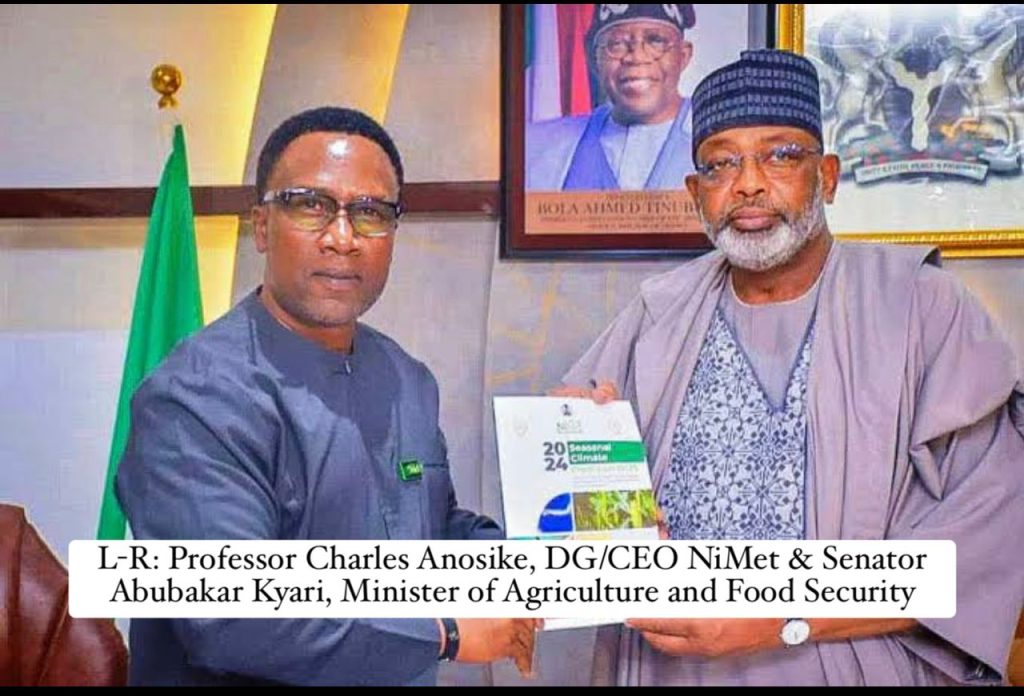
The ministry is also tasked to stimulate agricultural employment and services, promote the production and supply of raw materials to Agro- allied industries, provide markets for the products of the industrial sector, generate foreign exchange and aid rural socio-economic development throughout Nigeria.
The Nigerian Meteorological Agency (NiMet), is a Federal Government of Nigeria agency charged with the responsibility to advise the Federal Government on all aspects of meteorology. NiMet is also tasked to project, prepare and interpret government policy in the field of meteorology; and to issue weather (and climate) forecasts for the safe operations of aircrafts, ocean going vessels and oil rigs.
The Nigerian Meteorological Agency (NiMet), and the Federal Ministry of Agriculture and Food Security have in the past made moves to strengthen their existing relationship towards improving agricultural production and food security in Nigeria. The Ministry and NiMet had signed an MoU on the 3rd of March, 2022, to collaborate in a lot of areas including development of a dash-board for early warning systems, capacity building for staff of the Ministry and other stakeholders on accessing and interpreting information on meteorological parameter changes, and the provision of agro-meteorological advisory services to farmers on specific agricultural commodities. It would seem as if things quietened down after the MoU was signed.
However, at a joint press briefing on NiMet’s 2024 Seasonal Climate Prediction (SCP), at the instance of the Honourable Minister of Agriculture and Food Security, Senator Abubakar Kyari, on Tuesday, 16th April, 2024, the Honourable Minister and the Director General, Chief Executive Officer of NiMet, and Nigeria’s permanent representative with World Meteorological Organization (WMO), Professor Charles Anosike, resolved to strengthen the relationship and make it stronger. The Honourable Minister said at the press briefing; “Your presence here today, at our headquarters, marks another milestone in the deliberate and desirable collaboration and co-operation between our Ministry and your agency. Over the years, critical sectors of the economy, such as aviation, maritime, and agriculture, have come to rely on the Seasonal Climate Prediction published by NiMeT usually in the first quarter of the year. The reliability of the Seasonal Climate Prediction is indicated by increased recourse to the weather advisories contained therein”.
The Honourable Minister also said that NIMET’s Seasonal Climate Prediction can assist in shaping agriculture in Nigeria with regard to information about the pattern and duration of rainfall across the country’s agronomic zones, when to grow and length of growing season, as well as dry spells that could occasion loss of agricultural investment, where remedial measures are not taken. This in turn helps to boost the adaptive capacity of farmers. Regrettably, there have been farming seasons in Nigeria when farmers did not take advantage of the institutional advice from NIMET, and on their own misread the rainfall pattern, only to face dry spells that invariably ruined their crops and livelihoods.
In his remarks, Professor Anosike thanked the Honourable Minister for his leadership and the kind gesture to strengthen the relationship between NiMet and the ministry. “NiMet wishes to build on the database of farmers that the ministry has. Already NiMet disseminates information about seasonal climate prediction through formal engagements with farmers , and through the media such as the BBC, social media, Radio Nigeria and through national television stations.
However, a lot of gaps still exist within the dissemination space. Our goal is to reach as many Nigerians as possible with timely, accurate and actionable weather and climate information as part of NiMet Early Warning Drive”
Continuing, Professor Anosike said; “Food security requires consistent collaboration with all stakeholders. The SCP as predicted are being manifested but the challenge remains disseminating the contents to over 70 million farmers in Nigeria. Farmers need to be equipped with information and other resources to make climate resilient decisions”.
It is noteworthy and encouraging that weeks after the joint press briefing between the Federal Ministry of Agriculture and Food Security and NiMet, there are evidences of the renewed collaboration. This is positive and will benefit the Nigerian economy. Knowledge is power and if Nigerian farmers have weather and climate information translated in their local languages, they will be able to make climate resilient decisions such as knowing when to plant, what species of plants and seeds to plant and when to harvest to achieve greater yield.
The 2024 Seasonal Climate Prediction (SCP) released by NiMet provides an outlook of climate variables to help improve decision-making across all sectors of the economy. NiMet’s SCP for 2024 which was originally released in February 2024, forecasts normal on-set of rains over the northern states.Borno, Abia and Akwa Ibom states are predicted to have early on- sets. An early end to the season is predicted for parts of Yobe, Jigawa, Sokoto, Kebbi, Kano, Kaduna, Plateau, Nasarawa, Taraba, Gombe, Bauchi, Cross River, Ebonyi, Ogun and Lagos states.
A late secession is predicted over the southern states of Bayelsa, Rivers, Akwa Ibom, Ondo, Ekiti and part of Edo, Delta, Ogun, Oyo, Kogi, Kwara, FCT, Niger and Kaduna states.
Day and Night time temperatures for January to May is predicted to be warmer than normal in most parts of the country. Also, most of the North is anticipated to be cooler in March.
The Ministry and NiMet have re-intensified efforts at disseminating NiMet’s seasonal climate prediction (SCP), using FRCN network service, local radio, local and national press, national and local television. They are also using social media platforms. Applying the multi-step information flow model will require social media savvy stakeholders picking up the information online and sharing same to the farmers in their various communities.
A critical aspect of the dissemination is the physical downscaling of the SCP information to farmers in the various communities. This will require the support of the various states ministries of agriculture and NGOs operating in the agricultural space. They should support current downscaling efforts by the ministry and NiMet. From the schedule released by the Federal Ministry of Agriculture and Food Security, and NiMet, downscaling of SCP information to farmers in the six geopolitical zones have been scheduled as follows; Ondo (13th May), Imo (15th May), Delta (17th May), Niger (22nd May), Sokoto (4th June) and Borno (6th June). Farmers, civil society organizations, states ministries of agriculture, the media and other stakeholders can help in sensitizing the farmers to attend on the dates stated for their zones.
This initiative by the two MDAs is viewed as a positive step towards enhancing food security in Nigeria. It will empower our farmers, and has the capacity to mitigate the perennial challenges of climate variability. It will at the same time contribute towards sustainable resilience in the agricultural value chain.
The full SCP report can be downloaded from www.nimet.gov.ng. The report is also available from the Federal Ministry of Agriculture And Food Security Abuja, and State Ministries of Agriculture.
Dr. Nworah, a public affairs commentator wrote from Lagos.
Opinion
America, Iran and the abuse of democracy, human rights, by Hassan Gimba
Published
2 weeks agoon
May 6, 2024America, Iran and the abuse of democracy, human rights, by Hassan Gimba
“One of the shrewdest ways for human predators to conquer their stronger victims is to convince them steadily with propaganda that they are still free.” N. A. Scott, American author.
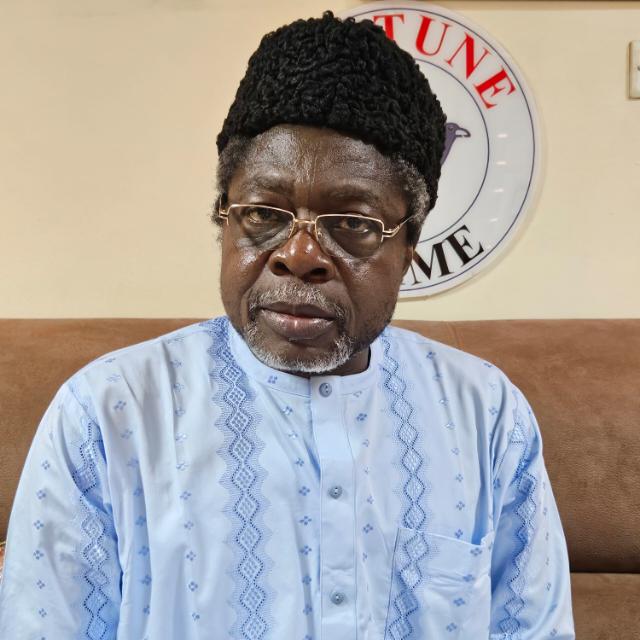
Every human being currently living on earth came to this world and saw the United States of America posing as the cradle of democracy, a bastion of freedom and a citadel of human rights.
For those of us in Africa, especially West Africa, and particularly those along the coastline, that America ruptured family cohesion, ties and lineage by forcefully taking our able-bodied forefathers and enslaving them, was either forgotten, forgiven, or both.
That after it was forced to abolish slavery by a changing world, it found a way to continue enslaving our able-bodied and intelligent youths in the name of providing greener pastures for them, which was either overlooked, not realised, or both.
As time went on, that it labelled those who wanted the best for their people as communists and demonised them, creating a bipolar world was either accepted as gospel truth by those who did not know the truth or parroted by those who were recruited to do that, or both.
That the then Eastern bloc (or communist/socialist countries), under the guidance of the Union of Soviet Socialist Republics (USSR), and its star boy, Fidel Castro of Cuba, all lined up to fight apartheid for African freedom was either lost on us or remained unappreciated, or both.
That Fidel Castro’s Cuba fought enslavers out of Angola for Angolans to taste freedom, training African youths in its universities and supplying Africa with medical doctors and free drugs while we still preferred to rush to America where we paid for everything through the nose reflected our slave mentality or lack of capacity to embrace truth, or both.
Truth is, we all grew up looking up to Uncle Sam as someone who cared for us in the third world, even when it was propping up the apartheid regime in South Africa or being a pillar of support to Ian Smith in Rhodesia, now Zimbabwe (Southern Rhodesia) and Zambia (Northern Rhodesia). Many of us did not see anything wrong in its support for Joshua Nkomo against the pan-Africanist Robert Mugabe.
For a long time, America has been working on the psyche of youths, especially in Africa, the Middle East, Asia and the communist/socialist countries to make them see their society as primitive and America as modern. The youths see their cultures and traditions as backward and archaic, their religion as stories of old, and Western depravity as the new religion.
It found a way in 1989 to infiltrate and brainwash Chinese students to rise against their country, demanding “political and economic reforms and greater respect for human rights”. The protesters gathered in Tiananmen Square in central Beijing, where they were forcefully evicted by military units, who killed a lot of them.
Tiananmen Square, or Tian’anmen Square, is a city square, measuring 765 x 282 metres, in the city centre of Beijing, meaning “Gate of Heavenly Peace”. The square contains the Monument to the People’s Heroes, the Great Hall of the People, the National Museum of China, and the Mausoleum of Mao Zedong, who proclaimed the founding of the People’s Republic of China in the square on October 1, 1949. It has great cultural significance in Chinese history.
America and its Western allies and propaganda machines did not allow what happened in China to be swept under the carpet or forgotten easily. It kept hammering on China’s “evil of repression”, that it emasculated and silenced the voice of the voiceless because that’s what students are. It told the world that China was an enemy of freedom, free speech, free association and democracy which it proclaimed as the only acceptable world order, despite its dalliance with repressive, autocratic and monarchic regimes, around the world.
Now fast-forward to 2024 and the pinching shoe is in America’s feet. Its students in no fewer than 15 universities and counting, with Columbia University in the lead, are protesting with the battle cry “Free, Free Palestine” for the freedom of Palestine that has been under Israel’s subjugation for decades.
America, the self-acclaimed doyen of freedom of association and speech, the guardian angel of democracy, is cracking down on the students for freely associating and using free speech to seek the freedom of another country. So far, scores of them have been arrested, some suspended, and some dismissed outright, while lecturers have been threatened with sack if they showed any sort of support to the students’ cause.
But that will hardly deter academics used to free speech as a first nature. One professor in the university bravely declared: “This is about a genocide being carried on with American money and with American weapons, against a people enduring generations of occupation.”
In a cheeky, and poignant, role reversal, Iran, which had suffered American instigation of its youths over time and had to deal with as it deemed fit, called on the US not to jeopardise democracy, freedom of association and free speech.
Shiraz University, a globally ranked university in Iran, just announced that it will grant scholarships to the students of American and European universities who have been expelled for supporting Palestine. It is also going to hire professors who have been fired or threatened with sacking for their stance towards Palestine.
Before the breeze blew and we saw the anus of the fowl, this was what America was doing to others all over the world – instigating youths against their fatherland, and when the country attempted to rein in its citizens, they would cry foul. They will then dole out scholarships, grants or work and Green Cards to those who fought against their country and its system.
In the words of Samuel P. Huntington, an American political scientist and academic, “The West won the world not by the superiority of its ideas or values or religion…but rather by its superiority in applying organised violence. Westerners often forget this fact; non-Westerners never do.”
Now America is receiving a dose of its medicine and it has failed to behave better than those countries it accused of truncating democracy, free association, free speech and human rights abuses.
Truth, it is said, is the only one that lasts. Falsehood and hypocrisy are just as temporary as the time it will take to blindfold the people.
What America is showing the world today is exactly the echo of the time immemorial words of Abraham Lincoln, its 16th president, who issued the Emancipation Proclamation that declared slaves forever free: “You can fool some of the people for all of the time, and all of the people for some of the time, but you cannot fool all of the people for all of the time.”
Hassan Gimba is the Publisher and Editor-in-Chief of Neptune Prime.
Opinion
IHATCH: JAPAN GOVERNMENT TASK TO LEVERAGE NIGERIA’S YOUTHFUL POPULATION- DG NITDA
Published
6 months agoon
December 3, 2023
By James Ishaku
As part of the current administration of President Bola Tinubu’s commitment towards creating meaningful opportunities for Nigerian youths, the Director General Of the National Information Technology Development Agency (NITDA), Kashifu Inuwa CCIE has called on the government of Japan to leverage on the youthful population through strategic talent partnership that will nurture and build a workforce that can be exported.
The DG made the call at the Ihatch startup incubation programme 2nd cohort demo day and 3rd cohort opening ceremony organised by the subsidiary of the agency, Office for Nigerian Digital Innovation (ONDI), in partnership with Japan International Corporation Agency (JICA) in Abuja.
Inuwa noted that the ihatch 5-month free intensive incubation programme executed by the ONDI and hosted within the National Centre for Artificial Intelligence and Robotics (NCAIR) is designed to help Nigerian tech entrepreneurs refine their business ideas through a series of coaching, lectures, and booth camps to develop scalable and adaptable business models that willfocus on youth, innovation, entrepreneurship, and technology.
He added that the incubation programme will be held simultaneously in Abuja, Lagos, Port Harcourt, Gombe, and Kano and JICA has agreed to extend the Fourth Cohort across each of the 36 States and the FCT. This is to enable wider reach and to stimulate the startup ecosystems across the States.
The DG stated that not fewer than 1,218 applications were received for the Second Cohort and the number was pruned down to 8 startups, comprising 16 persons, a Founder and Co-Founder for each startup, after undergoing levels of rigorous selection process conducted by a panel of judges, comprising experts in diverse areas of technology and innovative entrepreneurship.
He explained that the selection process assessed the startups’ ideas based on the criteria of profitability, scalability, social impact, idea technique, competitive advantage, experience, and a clearly defined future roadmap.
Inuwa further revealed that a total of 11,183 applications were received from across the 6 geopolitical zones for the Third Cohort. This culminated in the selection of the top 8 startups, comprising 16 founders in total that will participate in the Third Cohort that was launched.
He added that 16 startups that participated in the first and second cohorts of the iHatch incubation programme have moved on to achieve remarkable success in the areas of job creation, funding, participation in events, and valuable partnerships which have created a combined total of 179 direct jobs in the span of agriculture, health, education, and e-commerce sectors.
The DG further asserted that apart from the total grant of US$45,000 (US$15,000 each) for Proof of Concept (POC) to the top 3 startups in the first cohort, some of the startups have raised some funding through other sources. Xolani Health (a health tech startup from the first cohort) secured a grant worth US$155,000, BetaLife (a health tech startup from the first cohort) secured an angel investment of US$60,000, Gifty (an e-commerce startup from the second cohort) got a grant of USD$8,000 while two other startups from the first and second cohorts respectively, raised a combined total grant of US$6,000.
Inuwa affirmed the agency’s commitment to working with relevant stakeholders and partners towards the successful implementation of the Nigeria Startup Act (NSA) which will accelerate innovation and provide much-needed jobs for our teeming youths. Leaving nothing to chance in our resolve to nurture the entrepreneurial spirit in our youth to catalyze the Nigerian digital economy to the next level.
The Honourable Minister, Federal Ministry of Industry, Trade and Investment, Doris Nkiruka Uzoka-Anite, represented by National Coordinator, National Talent Export Programme, Dr Femi Adeluyi, applauded NITDA for the various initiatives and programs put in place for the advancement of the tech ecosystem in the country.
Anite noted that the NITDA DG at the Digital Nigeria International Conference 2023 edition harped on the need for Nigeria to become the talent destination of the world where countries will come to seek a workforce that will work with them towards achieving their goals and objectives.
She added that “technology is a pivotal tool in all aspects of life which cannot be overemphasized and the green transition scoreboard global total has reached about $7.13 trillion for export and about $6.6 trillion for importation, the important aspect is that 54% of these activities is digitally edible and prepares people to be effective and efficient in the different sector of the economy is laudable”.
The Minister also appreciated JICA for its relentless efforts toward the advancement of the tech ecosystem in the area of automobile, development, training, scholarships, interventions and a lot more which has impacted the citizens directly or indirectly.
The Ambassador of Japan to Nigeria, Matsunaga Kazuyoshi, represented by Yuzurio Susumu Chief of Nigeria Office in his remarks stated that Nigeria is the most popular country in Africa and the heart hub of entrepreneurship activities aimed towards the advancement of the country.
He added, “With all the challenges faced by insecurity, and limited infrastructures in the country, Nigerian startups are demonstrating remarkable creativity and resilience in developing solutions that other critical social issues in areas such as education, transportation, healthcare and finance”.
He added that the present administration has identified the transformation potential of startups and digitization making it a key factor in diversifying the Nigerian economy from its dependence on oil.
The Ambassador pointed out that startups are seen as a catalyst for business transformation, bringing fresh ideas, innovative technologies and new employment opportunities. Japan has the longest history of technological innovation and entrepreneurship has a significant role in supporting the Nigerian system.
Among those who attended were representatives from both the private and public and the top three (3) startups emerged with cash prices to Fundus AI 1st postion $15,000.00, Reno 2nd postion with $12,000.00 and Ilim Tutors 3rd postion $10,000.00 respectively.
Trending
-

 News5 years ago
News5 years agoBreaking: ‘Penalty’ Crooner Small Doctor Caught in Possession of Fire Arms
-

 News5 years ago
News5 years agoTiffany Trump Is Dating a Millionaire Michael Boulos From Nigeria
-

 News5 years ago
News5 years agoPDP Set To Cause Panic Days To Polls: FG
-

 News5 years ago
News5 years agoINEC Engages EFCC, FIU In Tracking Campaign Funding
-
News2 years ago
INEC Publish Final List of Candidates For 2022 Osun Governorship Poll
-

 Politics5 years ago
Politics5 years agoPDP Alleges Plot by APC, Presidency to Detain Its Leaders
-

 Politics5 years ago
Politics5 years agoOsinbajo Has Betrayed Yorubas, Says Afenifere
-
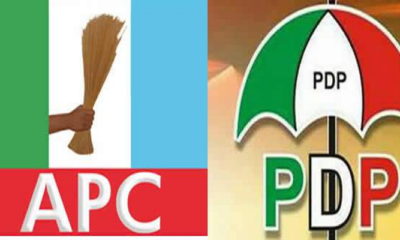
 Politics5 years ago
Politics5 years agoLagos Commissioner Decamps To PDP







